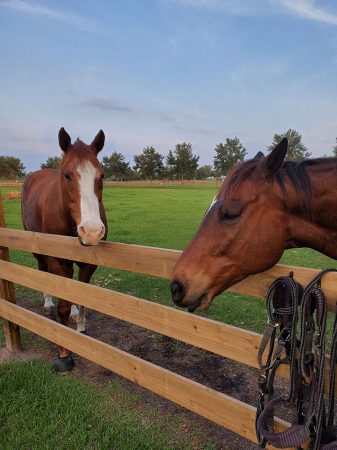Equine Assisted Therapy Programs at Providence Pass

The goal of Equine Assisted Therapy is to assist the teen in recognizing her emotional challenges and behavior tendencies, and developing the knowledge, skills, and attributes needed to overcome. The caring interaction between the student and the horse includes grooming, feeding, leading, riding — attending to the horse’s general needs. This provides the student with a healthy degree of responsibility.
Throughout and following the student’s interaction with the horse, the therapist-teacher observes and then reviews the dynamics of the interrelationship, and works with the student to process the emotional and behavior patterns that were exhibited. Therapy horses are simple, straight-forward, cooperative animals whose presence is peaceful. These equine attributes manifest a calming environment that is soothing, and therefore conducive to therapeutic healing for a troubled teen.
Benefits
Human involvement with animals has been shown to be an effective therapy for a number of disorders. It provides remedial benefits for teens with addictions, emotional problems, and even physical disabilities. Experiencing involvement with an animal can result in the caretaker’s growth in empathy, development of life skills, and improvement of social abilities. Patients who have undergone Equine Assisted Therapy as part of their restoration program have demonstrated improvements in a number of personal areas. Benefits include but are not limited to:
• Cultivating focus while coping with ADD/ADHD and other disorders.
• Alleviation of learning disabilities and development of comprehension.
• Identification of emotional problems and solutions.
• Advancing skills for managing emotional challenges.
• Cultivation of social skills.
• Overcoming fears and alleviating anxieties.
• Establishing healthy self-boundaries.
• Developing patience.
• Recognition of nervousness and learning to exercise confidence.
• Confronting addictions and accepting healthy alternatives.
Conclusion
Interaction with a horse, as a therapeutic means for helping some patients go beyond emotional blockages and take further steps in therapy, is being used increasingly. Hence, Equine Assisted Therapy is a welcome addition to the Providence Pass holistic approach of assisting teens overcome addictions, shortcomings, and trauma, and develop honest and trustworthy behavior.






